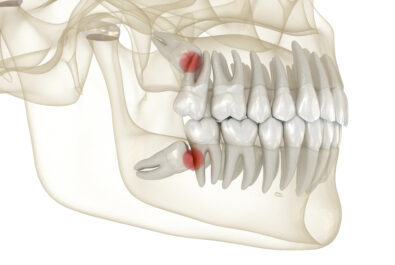Usually, dental treatment is minimally-invasive enough that sedation is not generally necessary. But for patients with high levels of anxiety, or who experience various degrees of dental fear, sedation may be a necessity for nearly every dental treatment.
Aside from anxiety, however, dental sedation can also help patients complete necessary restorative and other dental treatments in less time and in significantly more comfort. Depending on your medical history, your specific needs and preferences, and your dentist’s recommendation, you might benefit from an appropriate dental sedation option, as well.
Procedures that Require Dental Sedation
Wisdom tooth extraction
Extracting wisdom teeth isn’t always the same as extracting others. Wisdom teeth, which often become impacted by nearby molars, often require surgical extraction to safely remove them from within the jawbone. Because of its invasive nature, surgical wisdom tooth extraction is usually performed with the aid of dental sedation.
Dental implant placement
Dental implants are small, root-like prostheses that support a dental crown, bridge, partial denture, or full denture. Placing the implant posts requires minor oral surgery, and before scheduling your placement, your dentist will help you choose an appropriate sedation option to keep you calm and collected throughout the procedure.
Oral surgery
Oral surgery can include surgical wisdom tooth extraction, jawbone grafting, or other minor procedures that extend beyond the realm of general dental care. In many cases, oral surgery also includes the use of dental sedation, including IV sedation in the cases of extensive treatment.
Dental emergencies
When you experience a dental emergency, the result may be moderate to severe damage to one or more of your teeth, which can require immediate restorative treatment. If the damage is severe, then you may need to extract the tooth, or perform a complex restoration (like root canal treatment) to save it. To improve your chances of preserving your tooth in the face of an emergency, your dentist might suggest dental sedation to help you remain calm.














